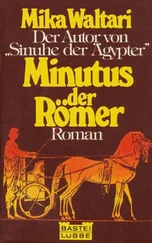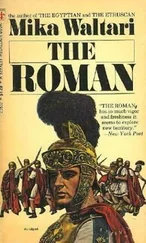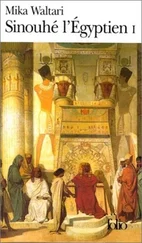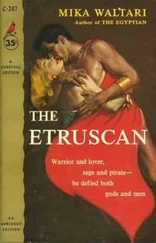From time to time she would bring me news or warnings plainly originating with Sultana Khurrem and intended by that guileful woman to reach the Grand Vizier through me. But for his part, Ibrahim could not reconcile it with his dignity to enter into any communication with the Sultana with Giulia as intermediary. In this he made a great mistake and underrated the Sultana’s terrifying strength of will and vigilant ambition. But who at that time would have done otherwise?
In the courts of the West the Sultana was known as Roxelana, the Russian woman. Presents, even from Christian princes, streamed to her through the golden portals of the harem; incredible stories were told of her luxurious way of life and her gorgeous clothes. One of her gowns was reputed to have cost a hundred thousand ducats. There were also tales of her cruel jealousy that made life in the harem a hell. If any woman there sought to attract the attention of the Sultan, or if he by chance glanced at one of them, Sultana Khurrem laughed gaily and saw to it that she disappeared.
I cannot say with certainty what gifts were sent her by the Emperor’s secret envoys or the King of Vienna, but during those uneasy months she did her utmost, Giulia told me, to induce the Sultan to make a treaty with the Emperor. Politically, of course, this was madness, for the Emperor had just been crowned by the Pope and had concluded peace with France, and thus stood at the height of his power. In the Diet of Augsburg he even succeeded in frightening the Protestant princes into obedience, and confident of victory was now preparing to make war on the Sultan. Indeed, in his quality of Most Catholic Majesty he implicitly obeyed the exhortation of Scripture not to let his right hand know what his left hand did. While secretly offering his left hand to the Sultan in token of peace, he slipped his right into a steel gantlet to deliver a crushing blow. Never before or since can the Ottoman Empire have been in such peril, and the Sultan’s desire for peace was easy to understand.
Fortunately, the only result of Charles V’s ultimatum to Germany was the founding by Philip of Hesse of a league of princes, in support of Luther’s teaching. King Zapolya and the King of France certainly had a finger in the pie, but the secret and I believe decisive reason for the princes’ defiance was Ibrahim’s promise of support in the event of war between them and the Emperor.
Which of these princes had their religious zeal stimulated by Turkish gold I cannot say, but Philip of Hesse at least found means to pay and equip his troops in a manner unaccountable to the Christians. I had my own reasons for frequently recalling the thin face and cold blue eyes of this man. Compared with the league he had formed, Father Julianus’s harmless preachings through Germany were of small significance. Luther and his pastors were now beginning to watch over the purity of their doctrine as jealously as ever did Holy Church, and to my sincere grief I must record that Father Julianus never returned to claim his bishopric. He was stoned to death in a small provincial town.
Thanks to the Schmalkald League, we were relieved of the heaviest of our anxieties, and the Sultan had no further need to listen to the advocates of peace. Grand Vizier Ibrahim on the contrary revived his ambitious plans for the conquest of the German states, with the Protestant princes’ support.
I disliked war, yet since for the well-being of the army a fresh campaign was necessary, it seemed to me that we had much to gain and nothing to lose by marching once more on Hungary. Among the mountains and barren wildernesses of Persia even a large army could vanish like a needle in a haystack. But in Germany the Schmalkald League bound the Emperor’s hands, and so favorable an opportunity might never return.
For Andy’s sake above all I looked upon war as something absolutely necessary, and I blamed myself for having neglected and forgotten my loyal friend for so long. One spring morning, when the tulips in my garden had unfolded their bright red and yellow cups, and fresh sea winds swept in from the sparkling Bosphorus, Andy knocked at my gate. Hearing the shouts of the porter I hurried up and at first failed to recognize my old friend. He came in barefoot with a sack on his back, wearing dirty leather breeches and a ragged turban, and I took him for one of the beggars that squatted in such numbers about my door. When I saw who it was I cried out in amazement, for Andy’s sturdy legs trembled with weariness, and his pale, staring face was twitching. He dropped the sack, pulled off his turban, and having gazed dully at me for some moments he said, “In the blessed name of the Prophet, Michael, get me something to drink-something strong-or I shall lose the remainder of my poor wits.”
I took him to the boathouse, drove out the Negroes who slept there, and with my own hands fetched him a keg of rare malmsey from the cellar. Andy knocked out the head of the keg, which he carried to his mouth, and in great gulps he drank half of what it contained. Soon the trembling in his limbs ceased and he sagged to the floor with a thud that shook the boards and sent dust flying from the joints of the walls. Then, hiding his face in his hands, he drew a deep breath and uttered so rending, so despairing a sob that I in my turn began to quake for dread.
“Michael,” he said, “I don’t know why I should burden you with my sorrows, but a man must turn to some friend at such a time. I don’t want to grieve you, but things are bad with me-as bad as they can be. Better if I had never been born into the misery of this world.”
“What in the name of Allah has happened?” I cried, in the deepest agitation. “You look as if you’d murdered someone.”
His bloodshot eyes were upon me as he answered, “I’ve been dismissed from the arsenal. They tore the plumes from my turban and kicked me out-they shook their fists and threw my belongings after me. I’m wretched, wretched.”
Relieved that it was no worse I admonished him, saying, “Is that all? You should have known what comes of drinking. But even if you have lost your pay, you’ve your wife’s fortune to turn to.”
With his head still in his hands he retorted, “I care nothing for the arsenal. We had an argument about the cannon and I told them their war galleys were only good for firewood. I wanted them to build bigger vessels to carry heavy ordnance, like the Venetians and Spaniards. So I went. He laughs best who laughs last. But I’m a sorrowful man and don’t expect to laugh ever again in this world.”
He seized the keg and poured more wine down his throat before continuing, “Your good colleague Master Gritti is behaving like a maniac in Hungary, and all the Transilvanian lords are at each other’s throats. But whether Hungarians or Moldavians, Wallachians or Tartars, all are agreed that no Mussulman shall own land in Hungary. My deed of conveyance from King Zapolya they put to what they considered its fit use before my very eyes, and have long since divided my flocks among themselves, slaughtered my cattle, and razed all the buildings to the ground. That poor Jew will suffer great loss, and I can’t get back a penny on all my lands, though they’re so wide that it takes a day and a night to ride from end to end of them. Sweet songs are brief songs, they say, and I own little but the breeches I have on.”
“But-but-” I stammered, realizing that I should have to take care of poor Andy once more, despite the friction this would cause with Giulia. Then, summoning courage, I clapped him on the shoulders and said, “We’ll find some way out, my dear Andy. But what has your wife to say to all this?”
“My wife,” said Andy absently. He raised the keg and emptied it at a draught. “I must have forgotten to tell you. The poor little girl is dead. And it was not an easy death. She suffered for three days before she went.”
Читать дальше











